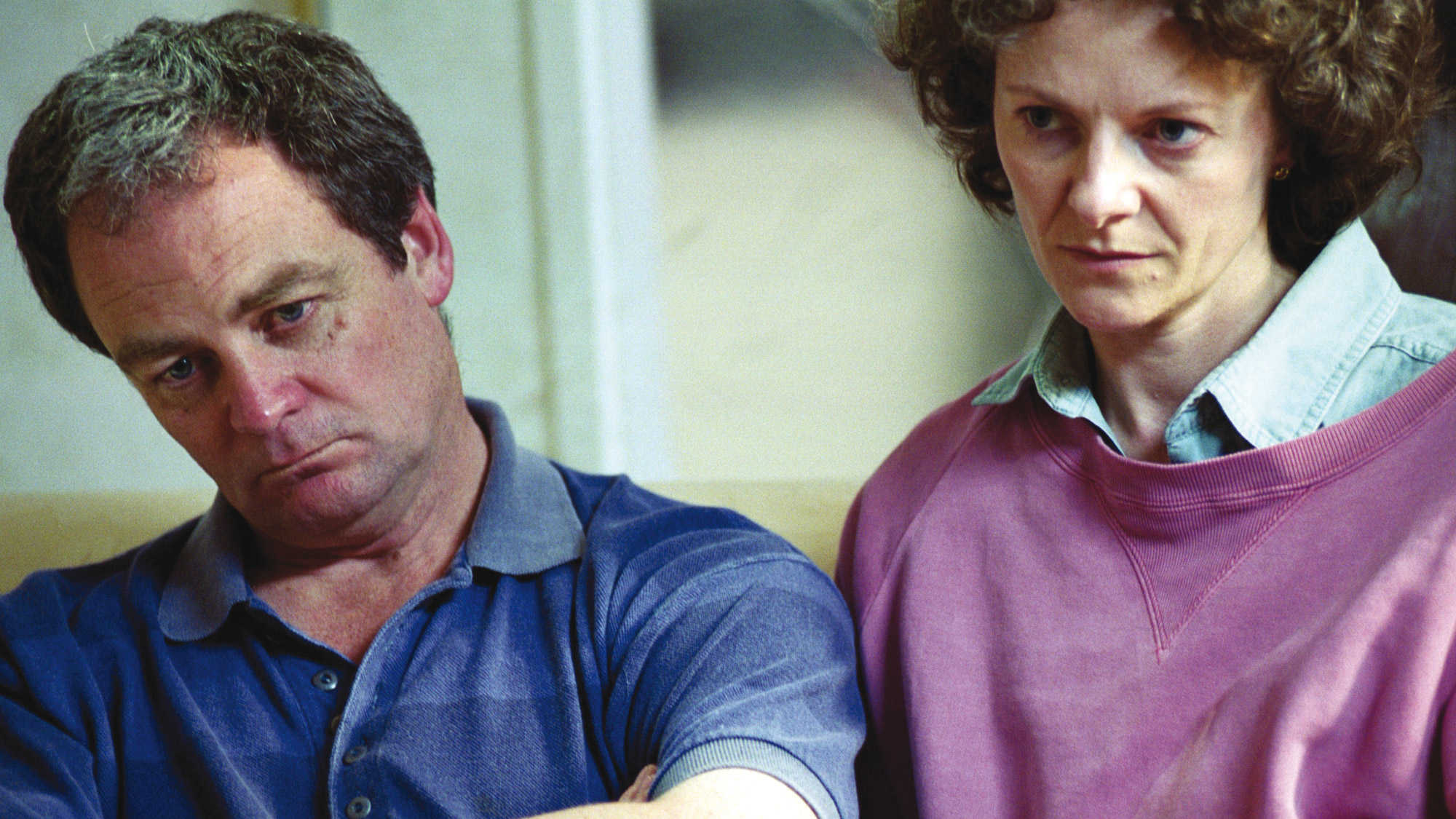
I want people to be left with a sense of loss painfully acknowledged and, in this way reveal strength, not hopelessness.
Screened as part of NZIFF 2003
For Good 2003
Writer/director Stuart McKenzie’s début feature For Good is a volatile, claustrophobic psychological thriller that mines New Zealand tabloid mythology to provocative effect. A decade previously 13-year-old Tracey Hill was abducted, raped and murdered in a small country town. Now the murderer, Grant Wilson (a disturbingly recognisable Tim Balme), is up for parole and the case is in the news again. The victim’s father has vowed to take the law into his own hands of the killer is released. Lisa, the film’s protagonist (newcomer Michelle Langstone), was born on the same day as Tracey and knew her slightly. At the age of 23 she can see that Tracey’s hideous death had a major impact on her own development. She wants to understand what happened. Posing as a journalist she visits Wilson and then talks to Tracey’s parents. She is stirred and drawn into the tormented worlds of both. But neither they nor the world at large will allow her the luxury of ambivalence…
For Good dares to promote the very ambivalence that Lisa is denied. Employing a tightly and suggestively patterned structure, where Lisa’s identification with Tracey is only the most explicit of several equivalences and parallels, McKenzie refuses to demonise the killer or sanctify the victim. The grieving father and the killer, apparently so diametrically opposed, share certain human needs and compulsions that need to be tended to very carefully. McKenzie’s script draws on material he and Miranda Harcourt developed in Harcourt’s solo theatre piece, Portraits, which itself drew on their own interviews with rapists, murderers and victims’ families. They are deeply familiar with their material and the film throws out enough ideas about the ways society generates, contains and exhibits its monsters to keep audiences arguing for hours. — Bill Gosden
I read an article in the Sunday Star-Times last year after I had finished editing the film. It was written by a journalist who was a 14-year-old Napier schoolgirl when Kirsa Jensen, also 14, was murdered there. She says, ‘Anyone who was a teenager when Kirsa was murdered remembers the shackles that tightened around her.’ It was a public loss of innocence. The subject matter of For Good is no more extreme than your average crime thriller, but it is different in that I have tried to remain sensitive to the quality of real lives and real voices… I want people to be left with a sense of loss painfully acknowledged and, in this way, reveal strength, not hopelessness. — Stuart McKenzie